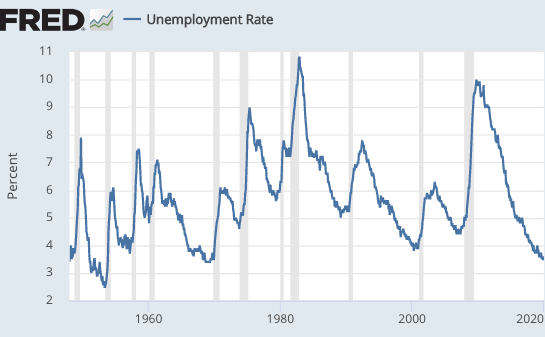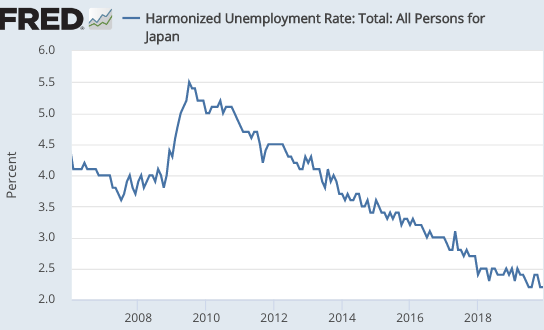Really dumb arguments
In any crisis situation you find some really dumb arguments. One of the dumbest of all is the claim that cutting interest rates can’t help if no one is going shopping, eating out, or taking vacations, and if supply chains are shut down.
I’ve already done lots of posts here and at Econlog exposing the stupidity of this argument. But here’s another reason:
Unless I’m mistaken, fed funds futures for January 2023 are down to about 0.7%, far lower than 10 days ago. Two things are very clear:
1. The coronavirus is the proximate cause of that decline (sorry Trump).
2. The decline did not occur because markets fear that the coronavirus will prevent people from shopping in January 2023. By that time, the health problem will likely be addressed in some way. Either the virus naturally burns out, a treatment is developed, a vaccine is developed, or something else. The coronavirus is not likely to still be preventing shopping in 2023.
But let’s say I’m wrong and it is still a huge problem in 2023. It’s not like the markets got any new information over the last 10 days making it more likely that we’ll face a problem in 2023; rather markets got information that it’s more likely the virus will spread outside of China this year. But that new information has no bearing on the likelihood of the virus eventually burning out, as did SARS, nor does it give us any new information on treatments or vaccines.
So what is the new information over the past 10 days?
1. Increased probability of a major supply shock this year (not in 2023.)
2. Increased probability that monetary policymakers will not be aggressive enough to prevent a recession, and if the recession occurs then demand will still be rather sluggish in January 2023 because the Fed will be too hawkish in the recovery.
This means that while the stock and bond market’s bearishness about 2020 might be for exactly the “people won’t shop” reasons that are often cited in the media, the increased bearishness about conditions in 2023 are almost certainly due to a loss of confidence in monetary policy.
In other words, we need adequate NGDP in 2023, and if we don’t get it then it will be the Fed’s fault.
PS. Don’t take this as me predicting a recession. There’s still a lot we don’t know about the virus (it seems to be slowing in China.) The level of stock prices is still fairly high, and if the virus doesn’t get too severe in the US then we may avoid a recession. But based on what we know now, a 50 basis point cut is needed ASAP.
PPS. Why is the media argument about shopping and interest rates so dumb? We cut interest rates to prevent policy from tightening. Imagine if you doctor said, “No point in eating food, as your real problem is pneumonia. Just go ahead and starve yourself, as food won’t solve your “real problem.””
PPPS. Hypermind NGDP market’s been somewhat bearish all year. What did they know that the experts did not?




